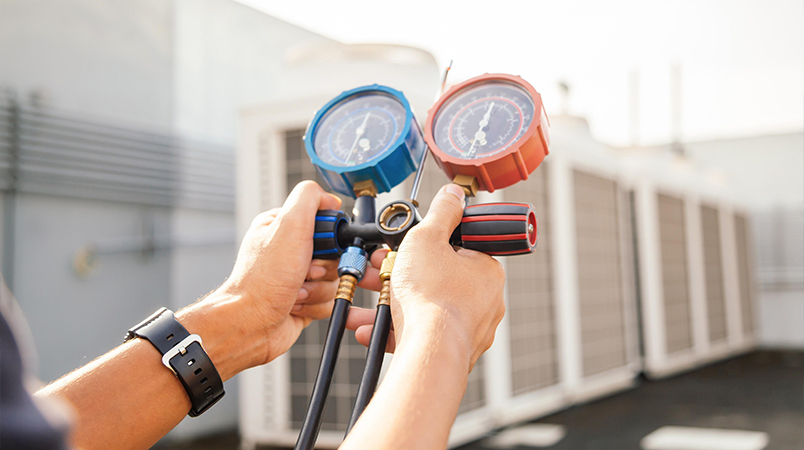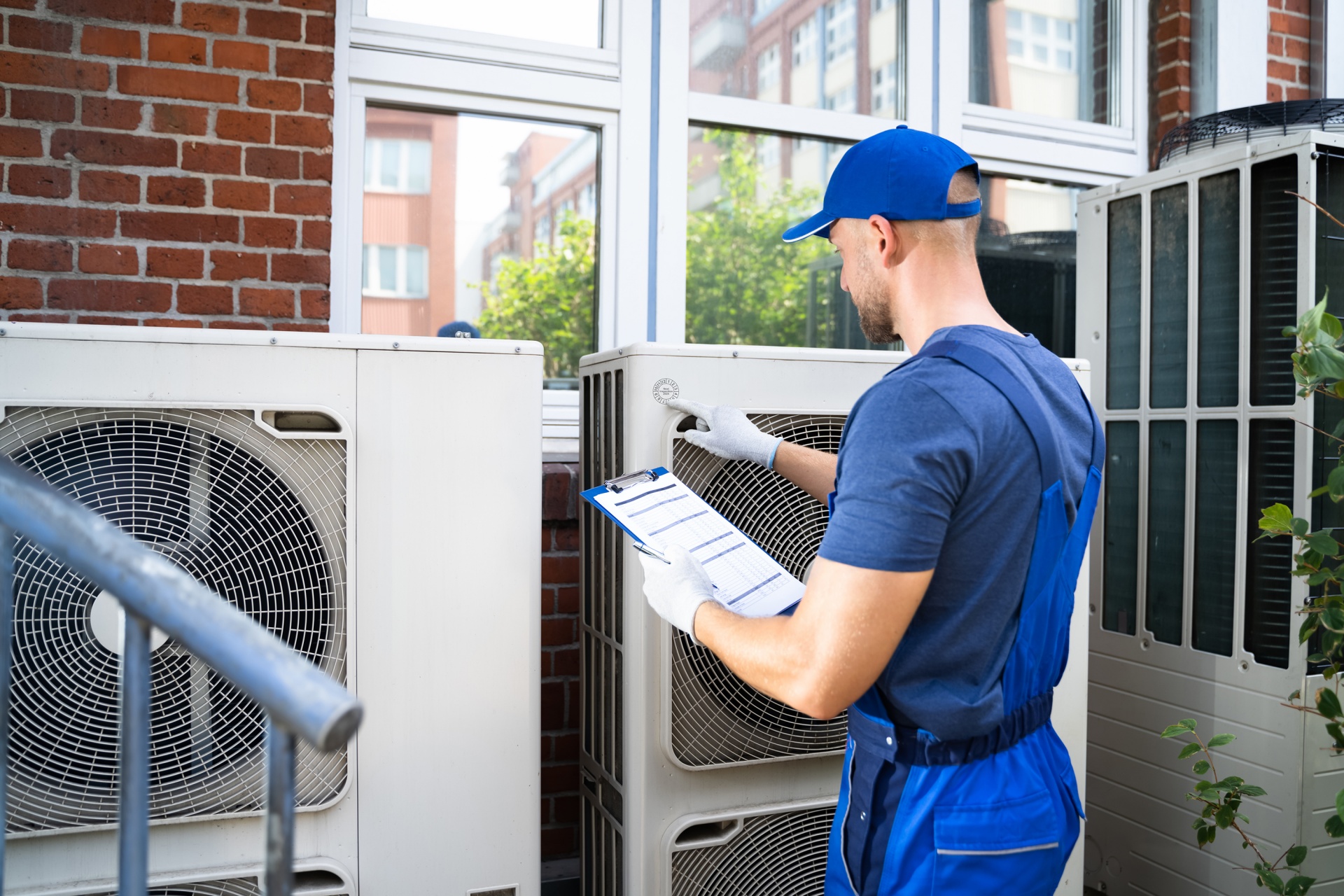Join HVAC Jobs Only website for exclusive access to top jobs
Unlocking Prospective: The Function of HVAC Workers in a Sustainable Task Market
The HVAC market is undertaking considerable transformations as sustainability becomes a concern. Cooling and heating workers are at the center of this adjustment, equipped with the skills to apply effective systems and green modern technologies. Their proficiency not just addresses existing needs but additionally positions them as necessary players in the future of energy conservation. As the landscape evolves, understanding their role will certainly disclose just how they contribute to a greener economic climate and adjust to brand-new challenges.
The Growing Significance of Sustainability in HVAC
As the global concentrate on ecological problems escalates, the HVAC market is progressively prioritizing sustainability. This change shows a more comprehensive dedication to minimizing carbon footprints and preserving energy. A/c systems, generally understood for their power usage, are now being upgraded to take full advantage of effectiveness and decrease ecological influence. Market stakeholders are integrating sustainable methods, such as utilizing eco-friendly refrigerants and maximizing system designs for reduced power usage.
Regulatory structures are evolving to encourage greener modern technologies, compelling HVAC specialists to adjust to these adjustments. Training programs are being established to outfit employees with the needed skills to carry out lasting services. This expanding focus on sustainability not just interest environmentally mindful consumers yet likewise placements heating and cooling employees as principals in the advancement towards a greener future. Therefore, the demand for proficient professionals adept in sustainable methods in heating and cooling is expected to climb, forming a much more resistant job market.
Cutting-edge Technologies Transforming the Heating And Cooling Market
Ingenious modern technologies are improving the HVAC industry, driving effectiveness and boosting customer convenience while resolving sustainability challenges. The assimilation of smart thermostats and IoT devices allows for real-time monitoring and control of a/c systems, enabling individuals to maximize their power intake. In addition, developments in variable refrigerant flow (VRF) systems offer versatile and reliable home heating and cooling down services tailored to specific building demands.
The usage of advanced purification modern technologies improves indoor air top quality, resolving health and wellness issues while promoting energy efficiency. Automation and anticipating upkeep powered by synthetic intelligence and device knowing enhance functional efficiency, lowering downtime and extending equipment life-span.
The surge of eco-friendly energy resources, such as solar-powered Heating and cooling systems, straightens with global sustainability goals. Collectively, these innovative modern technologies are not only changing operational techniques however likewise redefining the duty and skillset of a/c professionals in a quickly developing market.
Power Efficiency: A Secret Emphasis for HVAC Professionals
Energy efficiency has actually become a key problem for heating and cooling professionals because of current developments and energy-saving practices. These improvements not only boost system performance yet likewise significantly decrease the carbon impact connected with heating & cooling. HVAC Jobs Only job board. As the industry progresses, the dedication to energy performance will certainly play an important function in shaping lasting cooling and heating services
Advancements in Cooling And Heating Technology
While the need for effective environment control proceeds to climb, heating and cooling specialists are increasingly transforming their focus to innovations that focus on energy performance. Developments in modern technology are improving the market, with smart thermostats and variable cooling agent circulation systems obtaining grip. These advancements improve temperature policy while decreasing energy intake. In addition, the combination of Web of Things (IoT) tools allows real-time monitoring and anticipating upkeep, further maximizing system performance. Environment-friendly cooling agents are likewise being developed to minimize ecological impact. As energy performance comes to be a crucial focus, heating and cooling workers are welcoming these technological advancements, ensuring that environment control services are cost-efficient and sustainable. Such technologies not only benefit the setting but additionally improve the general performance of cooling and heating systems.
Energy-Saving Practices Implemented
As the a/c sector progresses, specialists are increasingly embracing energy-saving techniques that greatly enhance effectiveness. Service technicians are currently concentrating on sophisticated analysis tools to analyze system performance precisely. Normal maintenance routines have actually come to be common, guaranteeing excellent operation and stopping power waste. Professionals are likewise advising high-efficiency equipment, which uses sophisticated innovations to lower energy usage considerably. On top of that, the combination of smart thermostats permits tailored environment control, adjusting to individual choices while reducing excess power use. Insulation renovations and duct sealing are also emphasized, optimizing the effectiveness of cooling and heating systems. Collectively, these techniques not just improve functional performance but likewise add to lasting cost financial savings for customers, reinforcing the crucial duty of cooling and heating professionals in promoting lasting power options.
Influence on Carbon Impact
The execution of energy-saving techniques in the HVAC market considerably influences the carbon footprint connected with home heating and cooling down systems. By prioritizing power performance, cooling and heating professionals add significantly to lowering greenhouse gas discharges. High-efficiency equipment, such as energy-efficient central heating boilers and ac system, minimizes power usage while maintaining ideal indoor environments. Furthermore, regular upkeep and system upgrades guarantee peak functional efficiency, even more lowering energy use (HVAC Jobs Only jobs). Advanced modern technologies, including clever thermostats and Read More Here variable rate drives, allow for precise control over energy usage, leading to considerable decreases in carbon discharges. Jointly, these practices not just enhance sustainability however likewise placement cooling and heating workers as necessary gamers in the shift toward a greener economic situation, inevitably cultivating a more lasting future for the industry and the atmosphere
The Function of HVAC Workers in Minimizing Carbon Footprint
A/c employees play a necessary function in reducing the carbon impact via energy efficiency renovations and the combination of renewable energy resources. By enhancing air, heating, and ventilation conditioning systems, they add to lower energy usage and greenhouse gas emissions. Their knowledge not only improves structure efficiency yet additionally supports broader sustainability objectives.
Energy Efficiency Improvements
While lots of markets are functioning to boost sustainability, a/c workers play a vital function in carrying out power effectiveness renovations that greatly reduce carbon footprints. These experts are crucial in optimizing systems to reduce power consumption and improve efficiency. Through regular upkeep, they assure that a/c systems operate at peak effectiveness, reducing unnecessary power use. Additionally, they are competent in identifying obsolete devices and advising energy-efficient choices, such as high-efficiency boilers and smart thermostats. Their knowledge also encompasses enlightening clients about appropriate system usage and seasonal modifications, additionally advertising lasting techniques. By using innovative technologies and finest methods, cooling and heating workers contribute substantially to reducing greenhouse gas emissions, making them critical players in the change towards a greener future.
Renewable Power Assimilation
As renewable resource sources acquire traction in the mission for sustainability, HVAC workers are significantly tasked with integrating these technologies into existing systems. This assimilation includes the fostering of solar panels, geothermal systems, and energy-efficient heatpump, which considerably reduce reliance on nonrenewable fuel sources. By retrofitting buildings with these eco-friendly remedies, HVAC experts play an essential function in decreasing carbon footprints and improving energy performance. Their know-how is essential in guaranteeing that these systems operate sympathetically within standard a/c structures. Furthermore, HVAC employees contribute in educating customers regarding the advantages of renewable resource, cultivating a shift towards a lot more sustainable practices. HVACJobsOnly. Eventually, their contributions are important beforehand the market's commitment to ecological stewardship and energy preservation
Training and Abilities Development for Lasting Practices
To prosper in a quickly progressing work market, workers have to focus on training and skills growth concentrated on lasting techniques. The HVAC industry is increasingly integrating eco-friendly modern technologies, demanding that technicians acquire competencies in energy-efficient systems and environment-friendly cooling agents. Ongoing education and learning programs are essential for employees to remain updated on emerging fads, such as clever building innovations and progressed climate control services.
Hands-on training and qualification in lasting practices not only boost specific competence yet also add to overall sector criteria. Collaboration with educational establishments and sector organizations can foster a labor force that is proficient in sustainable cooling and heating solutions. In addition, welcoming electronic devices and software for energy management can further empower workers to execute effective systems. As the demand for sustainable methods grows, a/c experts furnished with specialized training will certainly be much better placed to satisfy customer expectations and regulatory demands, eventually enhancing their value in the job market.
Occupation Opportunities in the Evolving Heating And Cooling Landscape
The advancing heating and cooling landscape offers a wealth of occupation possibilities for professionals geared up with lasting techniques and cutting-edge skills. As the demand for energy-efficient systems increases, there is an increasing need for professionals who are well-informed in environment-friendly modern technologies and eco-friendly services. Settings in style, installment, and maintenance of sophisticated cooling and heating systems are becoming much more prevalent, as firms look for to enhance performance and minimize carbon impacts.

The Future of Heating And Cooling: Fads and Predictions for Sustainability
While the heating and cooling market remains to progress, fads Visit Your URL show a strong change towards sustainability as an essential aspect of future developments. Innovations in energy-efficient systems, such as variable refrigerant flow and wise thermostats, are coming to be increasingly prevalent. These technologies not just decrease energy intake however additionally navigate to these guys improve user convenience by maximizing climate control.
The integration of eco-friendly power resources, such as solar and geothermal systems, is also getting traction. This change lines up with global initiatives to minimize carbon footprints and battle climate adjustment. Furthermore, innovations in environmentally friendly refrigerants aim to minimize ecological influence while maintaining system performance.
As policies tighten up around energy performance and discharges, HVAC workers will certainly need to adapt to brand-new requirements and modern technologies. Continuous education and training will be important for professionals to grow in this advancing landscape, ensuring they remain integral to the sustainability activity within the market.
Frequently Asked Inquiries
What Accreditations Are Available for Cooling And Heating Professionals Concentrated on Sustainability?
HVAC professionals can go after qualifications such as LEED Green Affiliate, EPA Area 608 Certification, and NABCEP Solar PV Installer. These qualifications enhance their knowledge in lasting methods, power effectiveness, and environmentally pleasant technologies within the sector.
How Can Cooling And Heating Workers Supporter for Greener Practices Within Their Business?
Heating and cooling employees can promote for greener techniques by providing study on lasting technologies, proposing energy-efficient remedies, taking part in training sessions, and collaborating with monitoring to develop environment-friendly policies that profit both the environment and the company.
What Are the Common Misconceptions Regarding Cooling And Heating Careers in Sustainability?
Usual misunderstandings regarding heating and cooling professions in sustainability include the idea that these duties are exclusively technical, lack growth chances, or do not substantially influence environmental efforts, weakening their crucial duty in advertising power performance and eco-friendly methods.

How Does Climate Adjustment Affect Heating And Cooling Work Security and Demand?
Environment change increases demand for energy-efficient a/c systems, boosting task protection for heating and cooling experts. As regulations tighten up and understanding expands, knowledgeable employees are crucial for applying lasting remedies, making sure a durable future in the market.

What Are the very best Resources for Postgraduate Work in Sustainable Cooling And Heating Practices?
The most effective sources for proceeding education in sustainable cooling and heating techniques include on the internet training courses from certified establishments, industry webinars, trade organizations, and certification programs concentrated on power effectiveness, eco-friendly technologies, and sustainable layout concepts.
Cooling and heating systems, traditionally understood for their energy usage, are now being redesigned to maximize efficiency and decrease ecological impact. Cooling and heating workers play a necessary duty in minimizing the carbon impact with energy effectiveness improvements and the integration of renewable power sources. Through normal upkeep, they ensure that Heating and cooling systems operate at peak efficiency, reducing unnecessary energy use. As renewable energy sources acquire traction in the pursuit for sustainability, HVAC employees are significantly tasked with integrating these technologies right into existing systems. Environment adjustment raises need for energy-efficient Cooling and heating systems, boosting work safety for HVAC specialists.